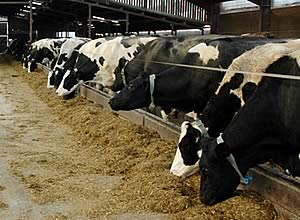 |
|||||||||
|
|||||||||||||||||||
BSE on
the wane worldwide Rapid rate of decline encouraging
Cases of Bovine Spongiform Encepalopathy (BSE) or “mad cow disease” worldwide are declining, according to the UN Food and Agriculture Organization (FAO). They have been dropping at the rate of some 50 percent a year over the past three years, the Organization said today. Amid the current international alarm over avian flu, it is good news that the battle against another worrying disease is being won. In 2005, just 474 animals died of BSE around the world, compared with 878 in 2004 and 1646 in 2003, and against a peak of several tens of thousands in 1992, according to figures collected by the Paris-based World Animal Health Organization (OIE), with which FAO works closely. Only five human deaths resulting from variant Creutzfeldt-Jakob Disease (vCJD), believed to be the human form of BSE, were reported worldwide in 2005. All of them were in the United Kingdom – the country most affected by the disease – where nine deaths were registered in 2004 and 18 in 2003. Vigilance still needed Andrew Speedy, an FAO animal production expert, commented: “It is quite clear that BSE is declining and that the measures introduced to stop the disease are effective. But further success depends on our continuing to apply those measures worldwide.” FAO insists on the importance of a scientific approach to detect and control the disease, ensuring it is eradicated in affected countries – and kept out of unaffected ones. FAO, together with Swiss experts, has been running courses for specialists from countries as far afield as Serbia, Egypt, Vietnam, Argentina, Brazil, Chile, Colombia, Mexico, Peru, Uruguay and Paraguay on BSE diagnosis, surveillance and prevention in the animal feed and meat industries. Also vital, said Speedy, is a tracking system that allows animals to be identified all the way from birth to shopping basket. This has been adopted across Europe but has yet to be implemented partially or fully in a number of other countries.
|
|||||||||||||||||||

|
|
||||||||||||||||||
| home | agri-services | pedigree
pen | news | dairy | beef | machinery quota | property | organisations | site map |
|||||||||||||||||||

